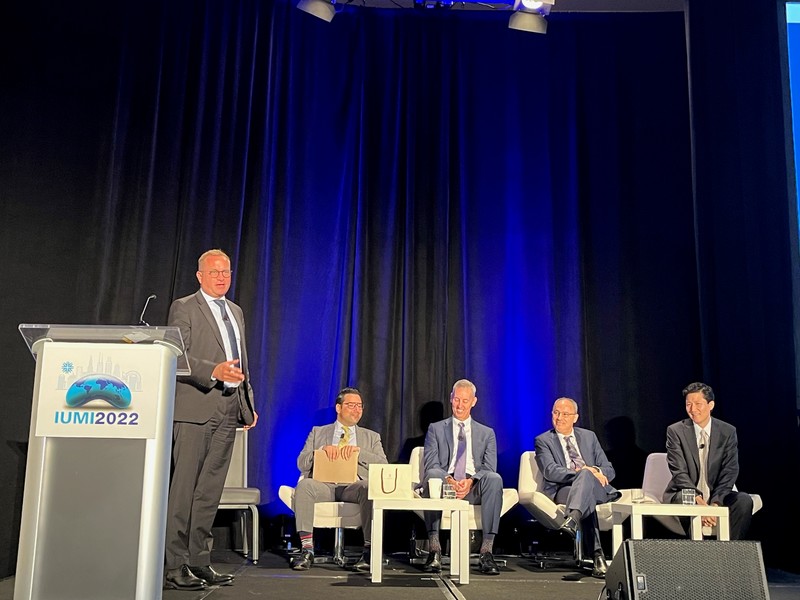After a series of quiet and rather uneventful years for the upstream energy market, recent macroeconomic and socio-political developments have once again put upstream energy center stage. Energy supply still heavily depends on hydrocarbons sources. Energy security concerns have forced western economies to find new providers and energy transition requires the whole sector to think in new innovative ways.
In this context, offshore energy underwriters are key enablers and drivers for the rapid shift to sustainable energy, according to Frank Streidl, chairperson of the International Union of Marine Insurance (IUMI) Offshore Energy Committee. Flexible thinking and a willingness to develop tailored products will be required to offer the necessary full life-cycle solutions.
Addressing delegates at the IUMI 2022 conference in Chicago, he told the audience of insurance professionals that to achieve the required shift towards sustainable offshore energy, the supporting infrastructure needs to be upgraded and larger wind farms developed further offshore at deeper water sites. Turbines will increase in size, with the typical new turbine output expected to be 15MW and 200m in height by 2030. At the same time the development of offshore carbon capture and storage facilities are also progressing. These types of ground breaking projects must be backed by insurance programmes that can help to de-risk these investments and unlock the necessary capital flows.
“The world is in transition, and it is the self-imposed responsibility of the insurance industry to support companies decarbonise in a safe manner. We need to play our part by developing new products, continuing to proactively support new technologies,” said Frank Streidl.
“Energy transition requires a joint industry, government, regulator, consumer, and insurance effort to be successful. We can be proud of what has been achieved to date. However, oil and gas still account for more than 90% of premium in the offshore energy market. Offshore renewables offer innovative underwriters the opportunity to develop products for our customers,” added Frank Streidl.
Offshore floating wind and solar farms for example offer the potential to deliver clean energy at a significant scale in the future. But with the increased distance to the shore come riskier installation, operational and maintenance issues including weather perils. Whilst cabling, foundation and mechanical issues have so far driven the majority of claims for the offshore renewables sector, the risk profile of offshore renewables assets is still evolving. The energy insurance sector wants to collaborate with insureds to respond with appropriate insurance cover that is reflective of the changing risks, as well as supporting corporates in managing them.
Ends
For further information:
Bill Lines
blines@navigatepr.com
+44 7970 730521
Notes to editors:
The International Union of Marine Insurance (IUMI) represents 44 national and marine market insurance and reinsurance associations. Operating at the forefront of marine risk, it gives a unified voice to the global marine insurance market through effective representation and lobbying activities. As a forum for the exchange of ideas and best practice, IUMI works to raise standards across the industry and provides opportunities for education and the collection and publication of industry statistics. IUMI is headquartered in Hamburg and traces its roots back to 1874. More information can be found at www.iumi.com.

